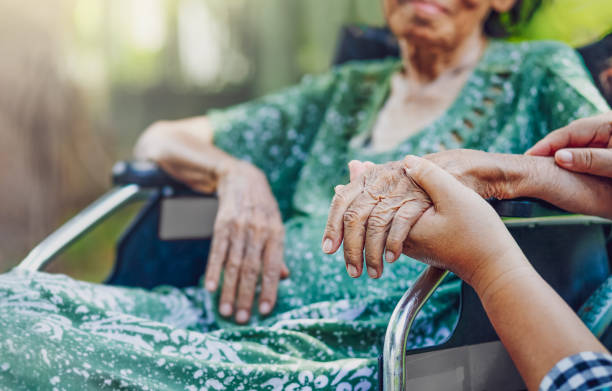In recent years, the global aging population has experienced a pronounced rise, leading to an increased focus on the well-being of elderly individuals. The absence of a caregiver can have profound repercussions among the myriad of challenges they face. The provision of care and support is vital for ensuring their health, safety, and overall quality of life. However, when elderly individuals find themselves without caregivers, they are exposed to a host of risks and potential negative outcomes.
This blog explores the multifaceted consequences of such situations, highlighting the importance of comprehensive care solutions for our aging loved ones.
Contents
Understanding the Risks of Isolation and Neglect
Isolation and neglect are significant concerns for the elderly, particularly for those without caregivers. The absence of social interaction and support not only impacts their mental and emotional health but also exacerbates existing health conditions. This section will dissect the nuanced risks associated with isolation and neglect, underscoring the critical nature of community and support in safeguarding the well-being of our older population.
The Psychological Impact of Isolation
One of the primary risks that elderly individuals without caregivers face is the severe psychological impact of isolation. Loneliness can lead to a wide array of mental health issues, including depression, anxiety, and cognitive decline. The absence of regular social interaction and companionship exacerbates feelings of abandonment and worthlessness, significantly diminishing their quality of life.
This isolation can also hinder the early detection and treatment of mental health issues, as there are fewer opportunities for others to notice changes in the individual’s behavior or mood.
Physical Health Deterioration

Without a caregiver, elderly individuals are at a heightened risk of physical health deterioration. This includes not only the progression of chronic diseases due to lack of management but also an increased risk of injuries from falls or accidents in the home. The absence of assistance with daily activities such as meal preparation can lead to malnutrition or dehydration, further compounding their health issues.
Additionally, the lack of supervision and help with medication management can result in missed doses or improper medication intake, leading to adverse health outcomes.
Decreased Access to Healthcare Services
Another consequence of not having a caregiver is decreased access to healthcare services. Caregivers often play a critical role in scheduling doctor’s appointments, providing transportation, and communicating with healthcare providers about their patient’s condition.
Without this support, elderly individuals may miss important appointments, delay seeking treatment for health issues, or struggle to comply with treatment plans prescribed by their doctors. This can lead to a deterioration in their health status and even preventable hospitalizations.
The Importance of Community and Social Support Systems
Communities play a pivotal role in mitigating the effects of isolation and neglect among the elderly without caregivers. By fostering environments that encourage social interaction and participation, communities can significantly enhance the quality of life for these individuals. Initiatives like senior centers, group activities, and volunteer visitation programs can provide much-needed companionship and support, reducing feelings of loneliness and abandonment.
Furthermore, communities that prioritize accessible public transportation and healthcare services ensure that elderly individuals can maintain their independence and access essential services without a caregiver.
The Impact of Technology on Elderly Care
The advent of technology offers promising solutions to some of the challenges faced by elderly individuals without caregivers. Telehealth services, for example, can improve access to healthcare by allowing patients to consult with their doctors remotely. Similarly, personal emergency response systems (PERS) and smart home devices can help monitor the safety of the elderly, alerting healthcare providers or family members in the event of an accident or emergency.
Additionally, technology platforms that facilitate virtual social interactions can help reduce feelings of isolation by connecting elderly individuals with their family, friends, and community members, regardless of physical distance.
Advancing Policy and Social Services Support
To comprehensively address the needs of elderly individuals without caregivers, it is imperative to advance policies and strengthen social services that support their health and well-being. This includes investing in community care programs, expanding access to affordable healthcare, and incentivizing the development of technologies aimed at elder care.
Policymakers must also consider creating safety nets that protect against the financial vulnerabilities many elderly individuals face, ensuring they have access to the resources needed for a dignified quality of life. By prioritizing these areas, society can create a more inclusive and supportive environment for its aging population, minimizing the risks associated with the lack of caregivers.
These measures collectively underline the importance of community, technology, and policy in crafting a supportive ecosystem for elderly individuals without caregivers. Recognizing and addressing their unique needs is a matter of health and safety and respecting their dignity and contributions to our families and societies.
Conclusion
Isolation and neglect can have devastating effects on the well-being of elderly individuals without caregivers. The risks associated with these conditions highlight the critical need for communities, technology, and policy to play a more significant role in supporting this vulnerable population. By addressing these issues comprehensively, we can ensure that our aging population receives the care, support, and dignity it deserves.

